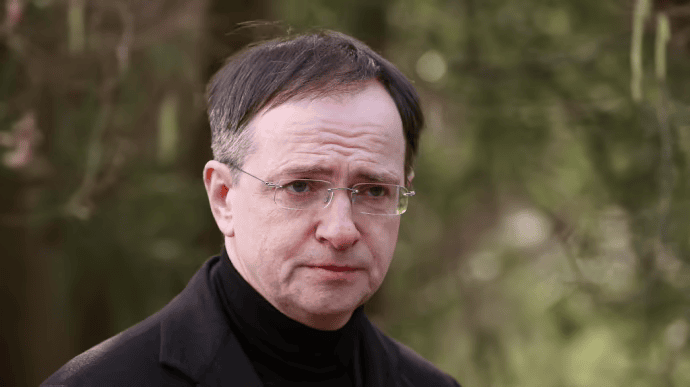Putin’s Istanbul Delegation: A Deflection Tactic Amid Looming Sanctions

Vladimir Putin’s decision to send a delegation of low-level officials to Istanbul for peace talks with Ukraine signals a clear lack of seriousness in pursuing a genuine resolution to the ongoing Russo-Ukrainian War.
The delegation, led by Vladimir Medinsky and an obscure figure named Fomin, mirrors the team dispatched in 2022 to demand Ukraine’s capitulation—a mission that collapsed under the weight of its own absurdity. This move, far from a good-faith effort, appears to be a calculated deflection to mitigate the impact of impending sanctions from the United States and Ukraine’s allies, who are poised to intensify pressure on Moscow.
The Istanbul talks were initially presented as an opportunity for dialogue—the first direct negotiations since March 2022. However, the composition of Russia’s delegation reveals the hollowness of this gesture. Medinsky, a former culture minister from 2012 to 2020 and a Putin loyalist known for promoting Russian nationalist narratives, led the 2022 talks that demanded Ukraine’s surrender, terms Ukrainian negotiators dismissed as absurd.
Fomin, likely Alexander Fomin, a Deputy Defense Minister since 2017 focused on military-technical cooperation, lacks the diplomatic clout for high-stakes negotiations, his role being more technical than political.
Yaroslav Trofimov, a seasoned journalist and author of Our Enemies Will Vanish, describes the delegation as lacking a mandate, stating, “these people don’t have a mandate to negotiate anything—they are just there to accept Ukraine’s suicide.”
In 2022, Medinsky demanded Ukraine dismantle its military to a token force of 50,000 men armed only with rifles and pistols, cede control of its foreign policy to Moscow, and install a Russia-friendly government in Kyiv—terms Ukraine rejected as a call for surrender, not peace.
The Russian market immediately sold off -2% upon news that Putin was sending low level flunkies to Istanbul.
![]()
Sending the B team
The choice of such a delegation is telling. High-level figures like Foreign Minister Sergei Lavrov or Putin’s foreign policy aide Yuri Ushakov were notably absent, despite speculation about their involvement.
Russia’s Kommersant newspaper confirmed Lavrov would not attend, and the Kremlin refused to disclose the delegation’s makeup, further fueling skepticism.
This contrasts sharply with the involvement of U.S. envoys like Steve Witkoff, Marco Rubio, and Keith Kellogg, who, while not heads of state, carry more direct ties to President Trump’s administration.
Putin’s decision to send a “B-team” suggests he is more interested in appearances than outcomes, a sentiment echoed by X users like George Kenney, who labeled the talks “Kabuki theater.”
The timing of the Istanbul proposal is critical. Reuters reported that U.S. officials had recently finalized new economic sanctions targeting Russia’s banking and energy sectors, aiming to pressure Moscow into a peace plan. These measures, layered on years of punitive actions since 2022, have strained Russia’s economy, though Moscow has found ways to circumvent them. The looming sanctions, potentially awaiting Trump’s approval, signal a hardening stance toward the Kremlin, as noted by Kurt Volker, a former U.S. envoy. Ukraine’s allies, including the U.K., have also ramped up support, with recent moves like the U.S.-Ukraine minerals deal underscoring a broader strategy to bolster Kyiv.
In this context, Putin’s Istanbul gambit appears as a deflection tactic. By proposing talks, he creates a veneer of diplomatic engagement, potentially staving off or softening the impact of sanctions. However, the delegation’s composition and its recycled demands—rooted in the 2022 Istanbul framework that Ukraine rejected as a surrender ultimatum—reveal his true intent. Ukraine, seeking only a 30-day ceasefire, remains resolute against capitulation, as Trofimov highlights. Historical patterns, like French Foreign Minister Jean-Yves Le Drian’s 2022 warning of Russia “pretending to negotiate,” reinforce this view.
Ultimately, Putin’s deployment of low-level flunkies to Istanbul is a hollow gesture, designed to distract from the mounting pressure of sanctions rather than advance peace. As Ukraine and its allies prepare to tighten the screws, these talks are likely to join the long list of failed diplomatic efforts aimed at breaking through to the leadership of the Russian terrorist state.
Previously, the EU imposed a 17th sanction package on Russia.